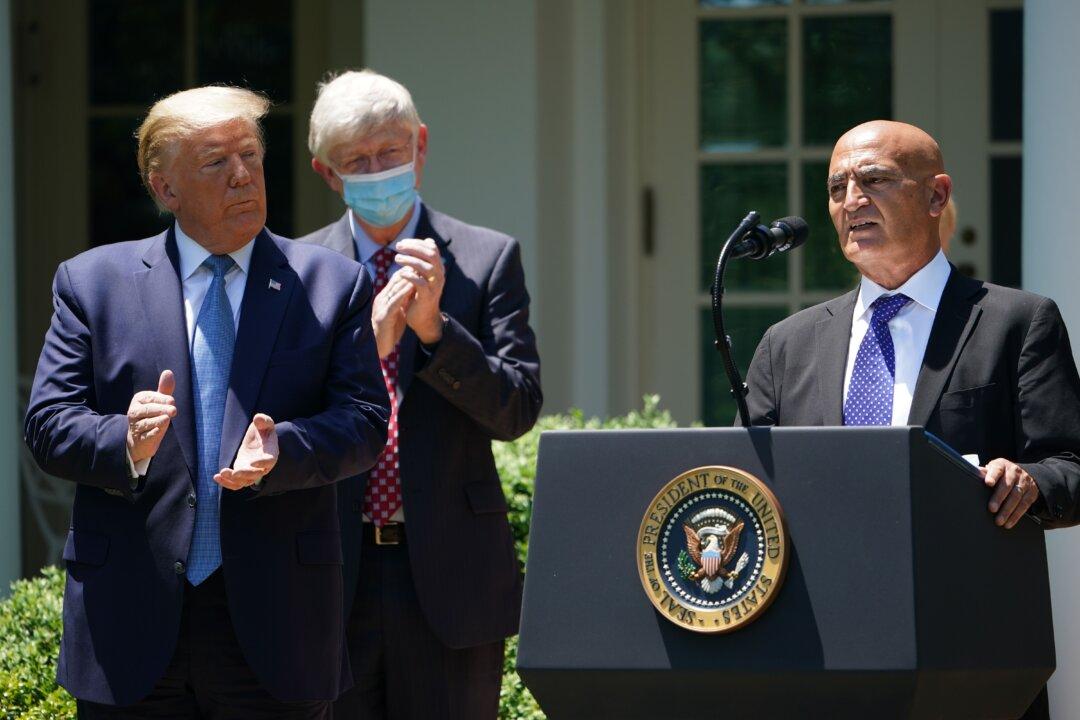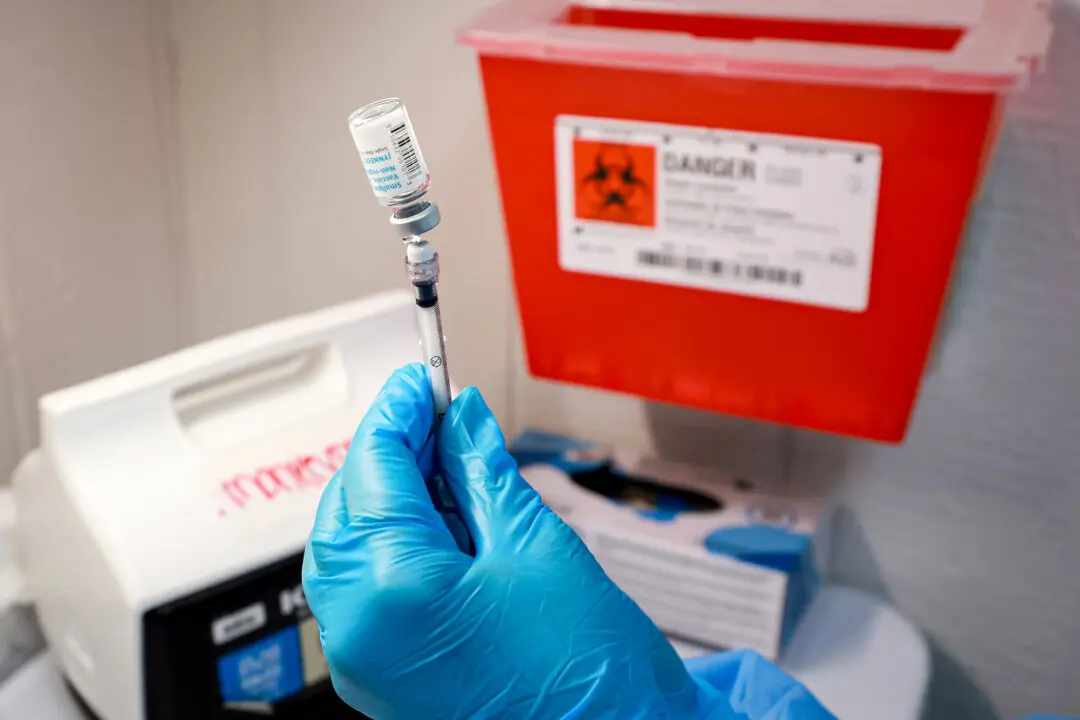The Trump administration’s newly appointed vaccine czar said early clinical data gives him confidence there will be 200 to 300 million doses by the end of the year.
“I have very recently seen early data from a clinical trial with a coronavirus vaccine and these data made me feel even more confident that we will be able to deliver a few hundred million doses of vaccine by the end of 2020,” Dr. Moncef Slaoui said during an event announcing his post at the White House’s Rose Garden on Friday.





